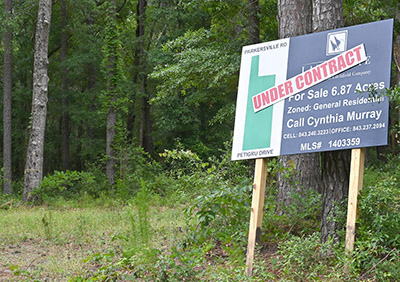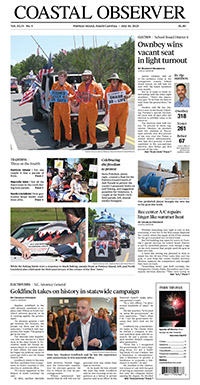Land use
Judge upholds his dismissal of suit over Parkersville townhouses

A Circuit Court judge has affirmed his decision to dismiss a lawsuit that challenges Georgetown County’s approval of two townhouse projects in the Pawleys Island area.
Judge Ben Culbertson denied a motion to alter or amend his July ruling that dismissed a suit claiming County Council violated state law and its own ordinances in approving the developments. The ruling came just over 48 hours after a hearing on the motion, which both sides agreed was uncommon. Most motions of that kind are decided on written filings.
An attorney for the neighbors and citizens groups that filed the suit argued at the hearing that Culbertson’s July ruling failed to consider key points in their complaint.
The county’s assistant attorney said the ruling touched all the bases and that a review wasn’t warranted under court rules.
What both sides agreed on was that the case will be appealed, like two other cases dismissed by other Circuit Court judges this year.
“I fully expect that case to be appealed,” Tommy Morgan, the assistant county attorney, told the judge.
The appeal is needed not only for the issues at hand, but to establish what the state law actually means, said Patrick Hubbard, a law professor at the University of South Carolina who is working with Keep It Green Advocacy to represent the plaintiffs.
Since the 1920s, state law has said that zoning must be done in accordance with a local government’s comprehensive plan.
“We have not confronted, in any detail, exactly what that language means,” Hubbard said.
The lawsuit followed County Council’s approval last year of “site plan review” for 41 townhouses on Petigru Drive and 47 townhouses on Parkersville Road.
The projects are considered high density under the county’s zoning ordinance and allowed in the “general residential” zoning district that includes both sites. The future land use maps in the comprehensive plan show the sites as medium density.
The suit asks the court to find that the county violated state law by not considering the density shown in the comprehensive plan.
The suit also claims that under state law the Planning Commission, which recommended denial of the projects, should have had the final say, not County Council.
“In one way, it’s a simple question,” Hubbard said: Can the county ordinance change the requirements of a state statute?
“The county cannot change fundamental parts of that, which is what they’ve done,” he said
In addition, when the council took that responsibility from the commission, it did so without establishing any guidelines for its decision making, Hubbard said, citing a state Supreme Court case that found that to be a violation in another jurisdiction.
Hubbard also cited what is known as the Sinkler case from Charleston County, in which the Supreme Court upheld a lower court ruling that “planned developments” must have a mix of residential and commercial uses in order to comply with state law. He said Charleston County acted in violation of the law by approving a single-use planned development.
“We have the same problem,” Hubbard said. “They did not follow the statute.”
When Morgan argued that the plaintiffs failed to meet the standard for having Culbertson review his ruling, the judge pressed him about the Sinkler case.
Morgan said that was addressed in the county’s pleadings and in Culbertson’s ruling, although it was cited as confirmation that the comprehensive plan is a set of goals that are supposed to be implemented through zoning.
“This court has said it was not in violation,” Morgan told the judge.
Three of the nine plaintiffs in the case attended the hearing, as did about a dozen other area residents.
“I want to explain this to everyone in here,” Morgan told the judge as he outlined the standard for reviewing Culbertson’s ruling.
Those are, based on a Supreme Court ruling, that the judge “misunderstood, failed to fully consider or perhaps failed to rule on an argument or issue,” Morgan said.
While the plaintiff’s said the ruling failed to address five issues, he said the order dismissing the suit addressed them all.
Both sides agree that the suit centers on the role of the comprehensive plan.
“The comprehensive plan is a guideline. It’s not binding law,” Morgan said. “The court spent ample time on this.”
In response, Hubbard said that the county’s pleadings failed to cite the complaint accurately. “That was one of the things that was overlooked or misunderstood,” he said.
Also, the ruling didn’t consider that the county exceeded its authority in taking “site plan approval” away from the Planning Commission, an act described in Latin as “ultra vires.”
“The ultra vires argument was not addressed,” Hubbard said.
Culbertson said he would take the arguments “under advisement” and go back and re-read the state statute.
Johnny Ford, who created the Parkersville Planning and Development Alliance, which is a plaintiff in the case, called the hearing “an education.”
It was the first time arguments had been made in person in any of the cases brought by Keep It Green Advocacy.
“I can see where both sides are coming from,” Ford said.
He added that he expects the case to be appealed.
Update: This article was updated from the print version to include the judge’s ruling.




